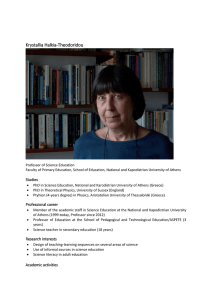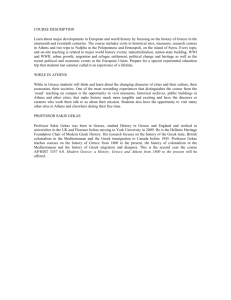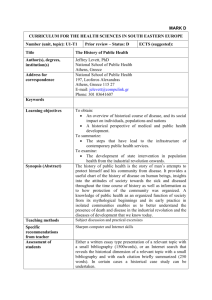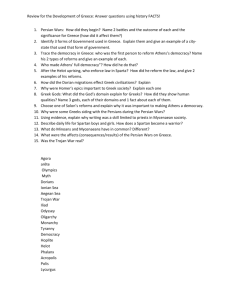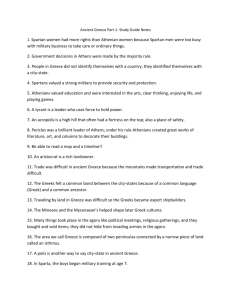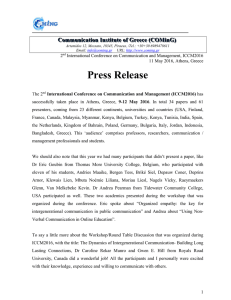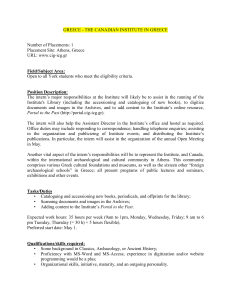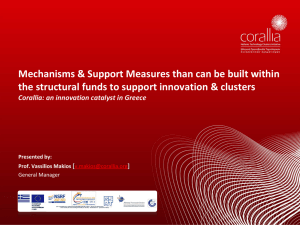Teaching Science to Primary School Students, Focused on Critical
advertisement
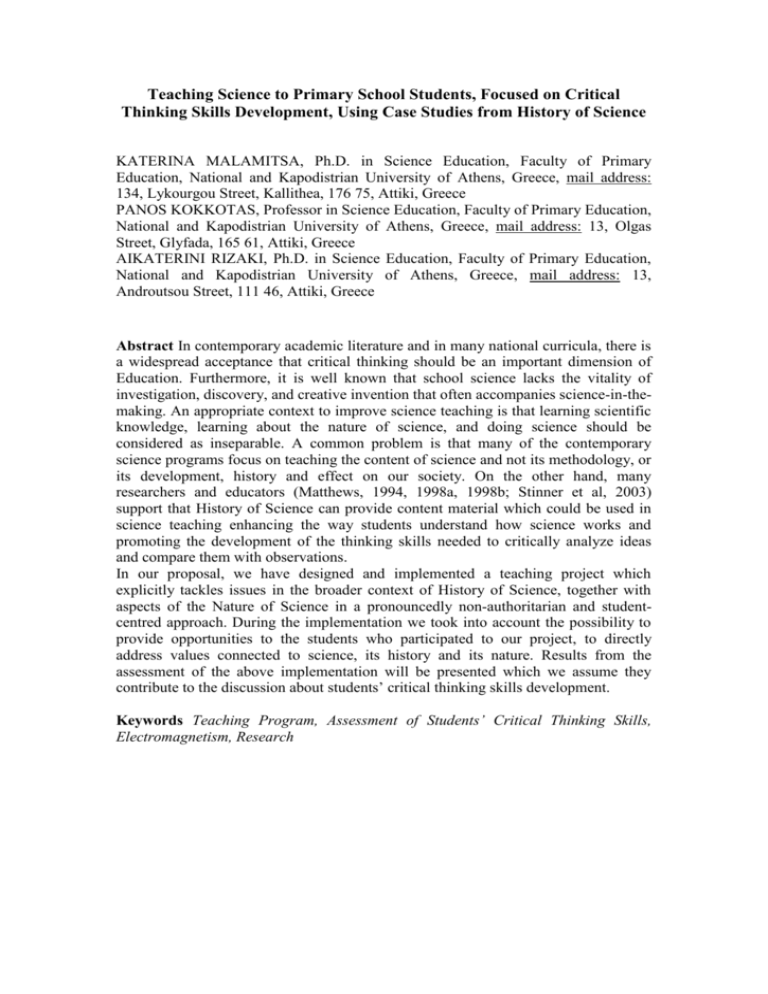
Teaching Science to Primary School Students, Focused on Critical Thinking Skills Development, Using Case Studies from History of Science KATERINA MALAMITSA, Ph.D. in Science Education, Faculty of Primary Education, National and Kapodistrian University of Athens, Greece, mail address: 134, Lykourgou Street, Kallithea, 176 75, Attiki, Greece PANOS KOKKOTAS, Professor in Science Education, Faculty of Primary Education, National and Kapodistrian University of Athens, Greece, mail address: 13, Olgas Street, Glyfada, 165 61, Attiki, Greece AIKATERINI RIZAKI, Ph.D. in Science Education, Faculty of Primary Education, National and Kapodistrian University of Athens, Greece, mail address: 13, Androutsou Street, 111 46, Attiki, Greece Abstract In contemporary academic literature and in many national curricula, there is a widespread acceptance that critical thinking should be an important dimension of Education. Furthermore, it is well known that school science lacks the vitality of investigation, discovery, and creative invention that often accompanies science-in-themaking. An appropriate context to improve science teaching is that learning scientific knowledge, learning about the nature of science, and doing science should be considered as inseparable. A common problem is that many of the contemporary science programs focus on teaching the content of science and not its methodology, or its development, history and effect on our society. On the other hand, many researchers and educators (Matthews, 1994, 1998a, 1998b; Stinner et al, 2003) support that History of Science can provide content material which could be used in science teaching enhancing the way students understand how science works and promoting the development of the thinking skills needed to critically analyze ideas and compare them with observations. In our proposal, we have designed and implemented a teaching project which explicitly tackles issues in the broader context of History of Science, together with aspects of the Nature of Science in a pronouncedly non-authoritarian and studentcentred approach. During the implementation we took into account the possibility to provide opportunities to the students who participated to our project, to directly address values connected to science, its history and its nature. Results from the assessment of the above implementation will be presented which we assume they contribute to the discussion about students’ critical thinking skills development. Keywords Teaching Program, Assessment of Students’ Critical Thinking Skills, Electromagnetism, Research
